Postdocs & collaborators
Current
 Claudio Aspesi (research collaborator 2025-present) is a respected market analyst with more than a decade of experience covering the academic publishing market for international investors. Between 2004 and 2016, Aspesi was the Senior Research Analyst at Sanford C. Bernstein covering European Media Stocks. The academic and scholarly publishing market – and Reed Elsevier/RELX and Pearson in particular – was a key area focus for him during his tenure. Previously he was Global Senior Vice President of Strategy at EMI Music and was responsible for defining EMI’s business model as the music industry entered the digital age. Before joining EMI in 2002, Claudio was a member of the executive team at Airclic, an Internet infrastructure company and, prior to that, a partner at McKinsey and Co., working with many leading media and entertainment companies.
Claudio Aspesi (research collaborator 2025-present) is a respected market analyst with more than a decade of experience covering the academic publishing market for international investors. Between 2004 and 2016, Aspesi was the Senior Research Analyst at Sanford C. Bernstein covering European Media Stocks. The academic and scholarly publishing market – and Reed Elsevier/RELX and Pearson in particular – was a key area focus for him during his tenure. Previously he was Global Senior Vice President of Strategy at EMI Music and was responsible for defining EMI’s business model as the music industry entered the digital age. Before joining EMI in 2002, Claudio was a member of the executive team at Airclic, an Internet infrastructure company and, prior to that, a partner at McKinsey and Co., working with many leading media and entertainment companies.
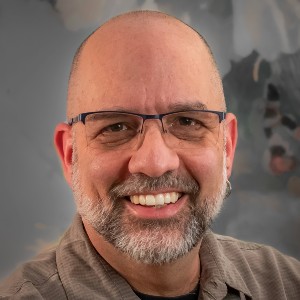 Philip Cohen (research collaborator 2019 – present, visiting scholar 2018) PhD, Professor, Department of Sociology at the University of Maryland, College Park
Philip Cohen (research collaborator 2019 – present, visiting scholar 2018) PhD, Professor, Department of Sociology at the University of Maryland, College Park
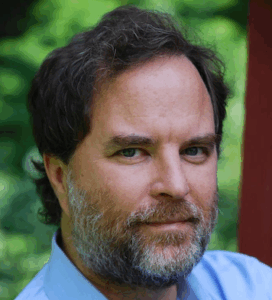 Peter Kaufman (research collaborator 2025 – present) is Associate Director of Development at MIT Open Learning. Educated at Cornell and Columbia, he is the author of The New Enlightenment and the Fight to Free Knowledge (Seven Stories Press, 2021) and The Moving Image: A User’s Manual (The MIT Press, 2025). An educator, publisher, and documentary film producer, he has served as Associate Director of Columbia University’s Center for Teaching and Learning; co-chair of the JISC Film & Sound Think Tank; co-chair of the Copyright Committee of the Association of Moving Image Archivists; a member of the Scholar Advisory Committee of WGBH’s American Archive of Public Broadcasting; a member of the American Council of Learned Societies Commission on Cyberinfrastructure in the Humanities and Social Sciences; and a long-time consultant to the Library of Congress’s Packard Campus for Audiovisual Conservation. He has been working with major philanthropic foundations around the world for more than 30 years.
Peter Kaufman (research collaborator 2025 – present) is Associate Director of Development at MIT Open Learning. Educated at Cornell and Columbia, he is the author of The New Enlightenment and the Fight to Free Knowledge (Seven Stories Press, 2021) and The Moving Image: A User’s Manual (The MIT Press, 2025). An educator, publisher, and documentary film producer, he has served as Associate Director of Columbia University’s Center for Teaching and Learning; co-chair of the JISC Film & Sound Think Tank; co-chair of the Copyright Committee of the Association of Moving Image Archivists; a member of the Scholar Advisory Committee of WGBH’s American Archive of Public Broadcasting; a member of the American Council of Learned Societies Commission on Cyberinfrastructure in the Humanities and Social Sciences; and a long-time consultant to the Library of Congress’s Packard Campus for Audiovisual Conservation. He has been working with major philanthropic foundations around the world for more than 30 years.
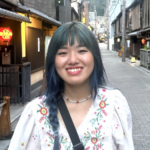 Hannah Hok Kim (postdoc 2024 – 2026) is a scholar of moral and social cognitive development with a focus on how children think about decision-making in groups, procedures, and rules. In her work, she has examined how children reason about majority rules decision-making in group contexts, as well as the inconsistency of rule use and motivation. She received her PhD in Developmental Psychology from the University of Chicago working with Alex Shaw. Prior to her time at MIT, Hannah worked at Harvard Libraries on digital scholarship initiatives, particularly focusing on how new technologies such as 3D objects and AI can be used to facilitate learning, research and general scholarship in university settings. Hannah is interested in studying open scholarship practice, norms, motivations, and belief across discipline and research method, with a particular focus on the epistemology of science. Outside of academics, Hannah likes to cook, read, play the bass, and draw.
Hannah Hok Kim (postdoc 2024 – 2026) is a scholar of moral and social cognitive development with a focus on how children think about decision-making in groups, procedures, and rules. In her work, she has examined how children reason about majority rules decision-making in group contexts, as well as the inconsistency of rule use and motivation. She received her PhD in Developmental Psychology from the University of Chicago working with Alex Shaw. Prior to her time at MIT, Hannah worked at Harvard Libraries on digital scholarship initiatives, particularly focusing on how new technologies such as 3D objects and AI can be used to facilitate learning, research and general scholarship in university settings. Hannah is interested in studying open scholarship practice, norms, motivations, and belief across discipline and research method, with a particular focus on the epistemology of science. Outside of academics, Hannah likes to cook, read, play the bass, and draw.
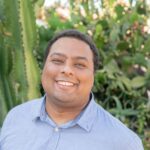 James Michaelov (postdoc 2024 – 2026) is a scholar of cognitive science whose research focuses on language models and psycholinguistics. He earned his PhD in Cognitive Science at the University of California, San Diego in 2024, and previously studied Philosophy and Linguistics at the University of Edinburgh, where he earned his Master’s degree in Cognitive Science. His main area of research is on the intersection of psycholinguistics and artificial intelligence, with a focus on how we can use language models and other computational systems to better understand human language comprehension in the brain, and how we can use insights from psycholinguistics to better understand and characterize the behavior of contemporary language models. At CREOS, he is interested in researching and developing guidelines for the responsible use of artificial intelligence systems in science. He also develops tools to improve access to natural language technologies such as language models for researchers in psycholinguistics.
James Michaelov (postdoc 2024 – 2026) is a scholar of cognitive science whose research focuses on language models and psycholinguistics. He earned his PhD in Cognitive Science at the University of California, San Diego in 2024, and previously studied Philosophy and Linguistics at the University of Edinburgh, where he earned his Master’s degree in Cognitive Science. His main area of research is on the intersection of psycholinguistics and artificial intelligence, with a focus on how we can use language models and other computational systems to better understand human language comprehension in the brain, and how we can use insights from psycholinguistics to better understand and characterize the behavior of contemporary language models. At CREOS, he is interested in researching and developing guidelines for the responsible use of artificial intelligence systems in science. He also develops tools to improve access to natural language technologies such as language models for researchers in psycholinguistics.
Previous

Corey Masao Johnson (postdoc 2021 – 2023) is an interdisciplinary scholar invested in the potential of technology and design to transform knowledge production. He holds an A.B. in English Literature from Harvard University, an M.St. in English and American Studies from the University of Oxford, and a PhD in Modern Thought and Literature/Anthropology from Stanford University. During his time with CREOS, he used case studies drawn from the MIT archives to analyze how research institutions can best align their archival and data management practices with indigenous data stewardship goals. Following his work with CREOS, Johnson became an ACLS Leading Edge Fellow with Asian Americans Advancing Justice (AAJC).
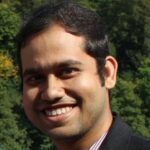
Suman Kalyan Maity (research affiliate 2023 -2024, postdoc 2021 – 2023) research interests lie in the interdisciplinary areas of Social Computing, Science of Science, Social NLP and Responsible Machine Learning. Prior to joining CREOS he was a postdoctoral research fellow at the Center for Science of Science and Innovation (CSSI), Kellogg School of Management and Northwestern Institute on Complex Systems (NICO) at Northwestern University. His work with CREOS focused on identifying the existence and potential causes of gender imbalances in citations in computer science and information science publications. Following his tenure at MIT, Maity joined the faculty of the Department of Computer Science at Missouri University of Science and Technology.
Erin McKiernan, PhD (External Advisory Committee 2021-2025) is a neuroscientist who has been a professor in the Department of Physics, Biomedical Physics Program, at the National Autonomous University of Mexico in Mexico City since 2015. She was recently named Community Manager for the Open Funders Research Group at SPARC (the Scholarly Publishing and Academic Resources Coalition). In her career, McKiernan has demonstrated a deep commitment to open scholarship. She has been active in SPARC’s OpenCon community and been contributing to the advancement of open principles for years, speaking at more than 70 conferences across five continents.
Anasuya Sengupta, M.Phil. (External Advisory Committee 2021-2025) A feminist advocate, strategist, grantmaker, and storyteller for communities and organizations, Sengupta has led initiatives nationally in India and the United States, regionally across the global South, and internationally for over 20 years. She is committed to amplifying voices ‘from the margins’ in both virtual and physical worlds, while unpacking issues of power, privilege, and access. Sengupta is currently co-founder and co-director of Whose Knowledge?, a global campaign to center the knowledges of marginalized communities (the majority of the world) online. As a 2017 Shuttleworth Foundation Fellow, she focused on expanding knowledge from the global South and other marginalised communities. She received a 2018 Internet and Society award from the Oxford Internet Institute for the “innovative use of the Internet as a platform to amplify marginalised voices in the virtual and physical world.”
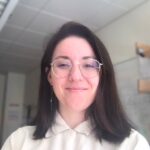
Ashley J. Thomas (visiting scholar 2022 – 2023, postdoc 2021 – 2022) investigates intuitive sociology, or what infants, toddlers, children, and adults think about social relationships. She holds a Master’s and Doctorate in Psychology from the University of California, Irvine. During her time with CREOS, she used interventional and observational methods to probe the psychological mechanisms of collaboration and openness among target groups of scientists, and collaborated on the design and delivery of a course on tools for robust science that focused on examining methods for rigorous and reproducible research. Following her tenure at MIT, Thomas joined the faculty of Harvard University.
Former Student Researchers
Joseph Abayo, David Onedeko, Margaret Q Wang, Mikaela Finlay, Daniel Ige, Irura Nyiha, Xeon Khan, Shahzod Nazirov, Eva Ge, Ashley Yang, Sergio Velez
